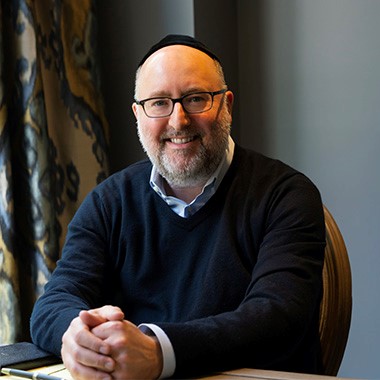This article was previously published in 2019.
We are now in the time of Sukkot, the seven-day period following Rosh Hashanah and Yom Kippur, when we receive what is called the Light of Mercy, which includes within it all the blessings and protection that we want to draw throughout the rest of the year. If not for the purification of Yom Kippur and the removal of judgments on Rosh Hashanah, we would not be able to receive all the blessings and protection that are available for us during this time. However, to manifest the Light of Sukkot, we have to awaken the proper consciousness and mindset.
“We receive what is called the Light of Mercy.”
There is a story in the Midrash that illustrates the type of consciousness one should come into the sukkah with. It is based on a verse in Psalms from King David, where he is speaking to the Creator, and says, “I put my trust in You, and therefore I have no fears, I have no doubt, because I know the Creator is going to come and support me.” The question the Midrash asks, however, is: while it is fine that we want the Creator to be the source of all our protection, blessings, and Light, how do we know that the Creator wants to be that for us?
This is the story the Midrash answers with:
There was a thief who lived in a town whose governor made it his mission to catch all the thieves who resided there. One day, the governor’s soldiers caught this thief, who told them, “You are working for the governor, who works under the king. I am one of the king’s best friends, and so, you cannot touch me.” When the soldiers heard this, of course they did not touch him, and held onto him until the morning when they brought him to the king.
The king, who did not recognize the thief, asked him how they know each other, and the thief responded that they really did not. So, the king asked, “Then, why did you tell them you are one of those closest to me?” To which the thief answered, “It is true we are not close, but as you can see, I put my complete trust in you. Had I not said we were close, they would have hurt me.”
So, the king, who was joyful – like it is during the time of Sukkot - told the soldiers to let the thief go. Why? “Because,” the king said, “the thief put his complete trust in me and did not try to run away. He knew that if he came to me, I would protect him and let him go.”
“Sukkot is a time of joy.”
That is the gift of Sukkot; just as in Psalms, when King David says to the Creator, “I trust in You, and although it is true that You, the Creator, might not know me, I know You. And I put my trust in the Light. Therefore, the Light has to protect me.” Sukkot is a time of joy, and as such, when we come to the king, or the Creator, who is joyful, even if we don’t necessarily do or say the right things, because the Creator is in such a good mood, He lets everybody in.
After the work of Rosh Hashanah and Yom Kippur, some of the forces of judgment and negativity have been transformed, and some have been completely removed. But for those of us who do not think we completely removed all of it, we have Sukkot. During Sukkot, the Zohar says, we run away from the judgment and negativity into the house of the king, into the sukkah, the house of the Creator. And while it is true that the Creator, as in the story, will say to us, “Who are you? I do not know you, but now you are asking Me to protect you,” on Sukkot, because there is such an overwhelming amount of Mercy coming from the Light, even those of us who do not deserve to receive the Light, blessings, and protection that the house of the Creator can give us, are allowed into the sukkah, and allowed to receive all of it not only for today, but for the entire year.
